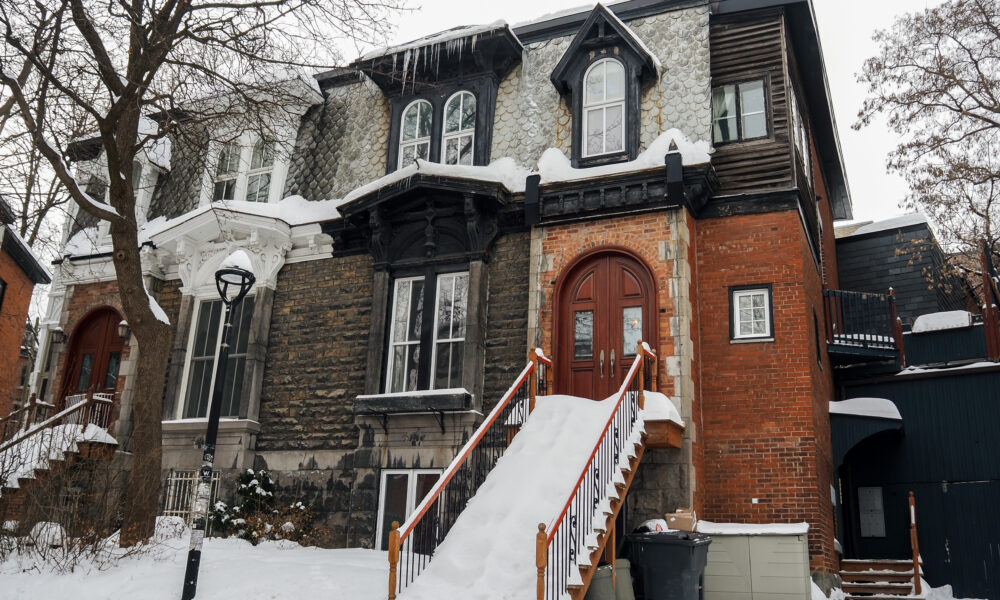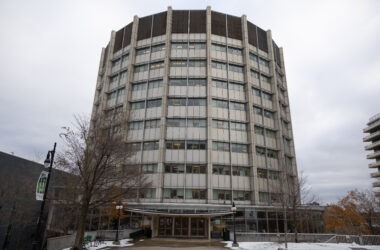On Jan. 21, Quebec’s Tribunal administratif du logement (TAL) announced that its recommended rent increase rate for 2025 was 5.9 per cent for units that do not include paid heating, and between 4.1 and 5.5 per cent for units that include heating in the rent. While this recommended increase rate is not binding, it is a signal for both landlords and tenants of what is considered a reasonable rent hike.
This year’s recommendation is the highest since 1988. It also represents a significant jump from 2024’s rate of 4 per cent and 2023’s rate of 2.3 per cent, although when tenants contest rent increases, the TAL often approves increases in excess of their recommendations. In 2024, the average rent adjustment granted by the TAL was 5.8 per cent. Daphne Sainte-Onge, an organizer for the tenant union Syndicat des locataires autonomes de Montréal (SLAM), commented on the difficulties these hikes can pose for tenants.
“The majority of tenants are not receiving raises, (cost of living or otherwise), that match these increases, so every year rent is eating away a bigger chunk of our earnings and landlords are taking more from our pockets as tenants,” Sainte-Onge wrote in an email to The Tribune.
Sainte-Onge also noted that students are particularly vulnerable to exploitation by landlords through high rent increases, due to their high turnover rates and lack of collective organization. She emphasized the importance of speaking with one’s neighbours about rent prices and contesting unreasonable hikes.
“Landlords often ask for unjustifiably high increases because they do not expect tenants to push back, but you have the right to refuse and to stay in your apartment,” Sainte-Onge wrote. “Negotiating collectively multiplies the power tenants have to fight back.”
Elliott Kalt, U2 Science, and his roommates were paying $3,000 CAD a month for a three-bedroom apartment in the Plateau, where one of the bedrooms did not have a window. When Kalt and his roommates decided not to renew their lease, the landlord listed the apartment for $3,300 CAD, a 10 per cent increase in just one year.
“I think that my old apartment was already a bit expensive for what it was, but increasing the rent by $300 almost feels criminal,” Kalt wrote in a statement to The Tribune.
While upper-year students navigate the housing market in broader Montreal, first-year students living in McGill residences are also considered tenants, signing leases with McGill for the duration of the academic year. While the Quiet Residences at the Downtown Campus and Laird Hall at Macdonald Campus offer prices per room from $585 to $985 CAD for some students, prices in residences range from $1,055 CAD to $1,780 CAD, with a regular single room in Royal Victoria College costing $1,610 CAD per month, and a double room in La Citadelle costing $1,545 CAD per month.
These rents do not take into account the mandatory meal plan in most residence halls, which is currently $5,800 CAD for the year. In the Plateau, the average rent for a one-bedroom apartment is $1,512 CAD; however, that price includes a bathroom and kitchen.
As a landlord to thousands of students, McGill also makes decisions about rent increases year to year. The McGill Media Relations Office (MRO) commented on the factors the university takes into account when setting residence fees.
“The Quebec Rental Tribunal’s rent increase rate provides a guideline for understanding the housing market, but it is not the main factor we consider when revising our fees,” the MRO wrote in an email to The Tribune. “More importantly, we take into account the overall cost of living in residence, the condition of each building, and if any recent upgrades and renovations have been done.”
The rent for McGill residences in the 2025-2026 academic year has not yet been finalized, but the MRO stated it would be announced in the next several weeks.
With rent increases across Montreal, students are struggling to find suitable apartments for reasonable prices.
“I’ve definitely seen pricing get worse over time, but the more annoying part of looking for a place is just finding a place that has windows in all rooms—something you would think is a normal standard,” Kalt wrote. “Overall, it feels like the quality of places has gone down while prices have increased.”







